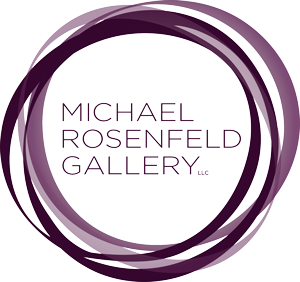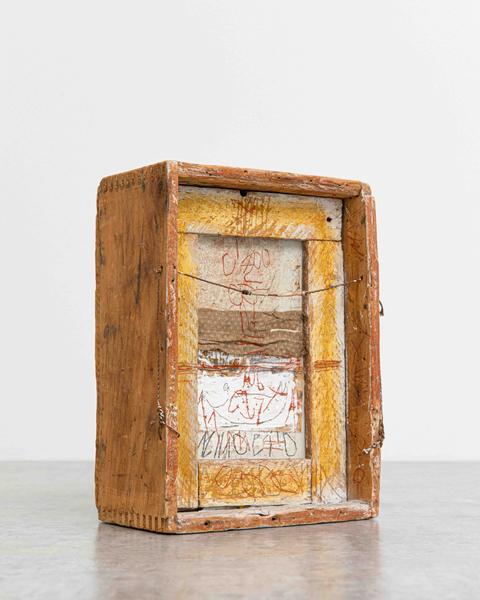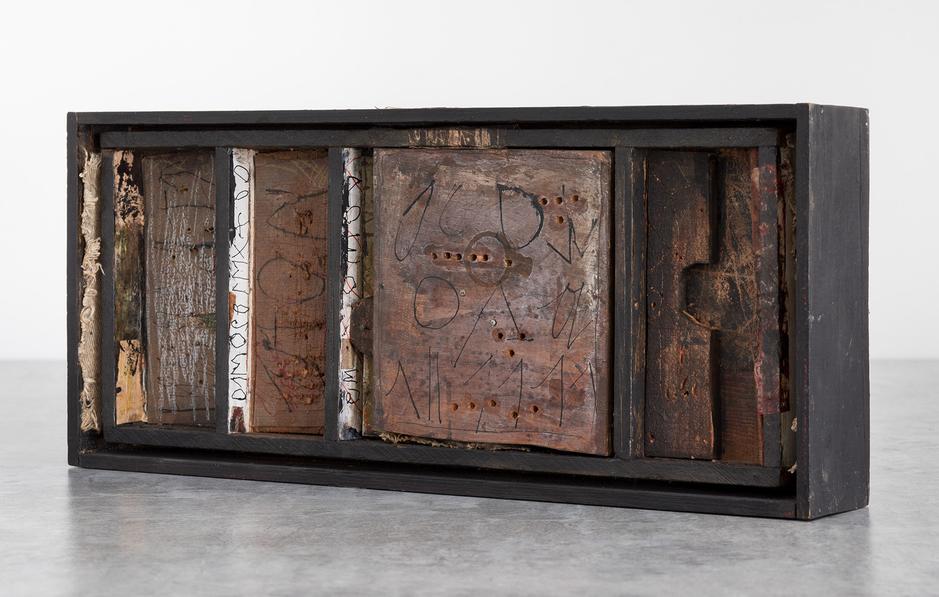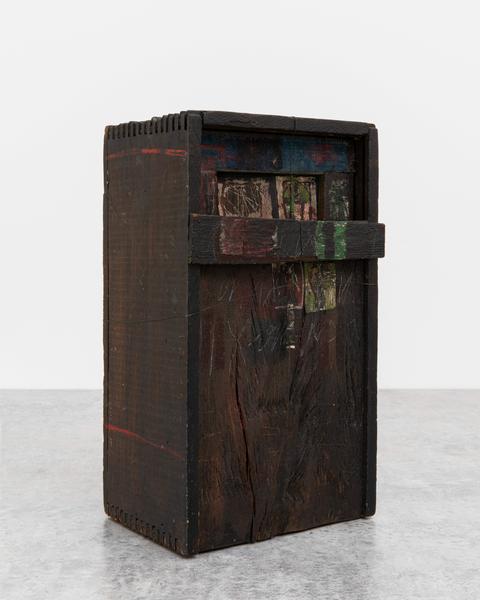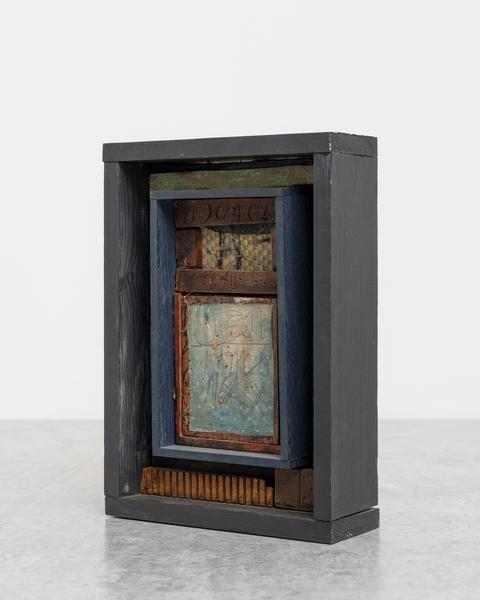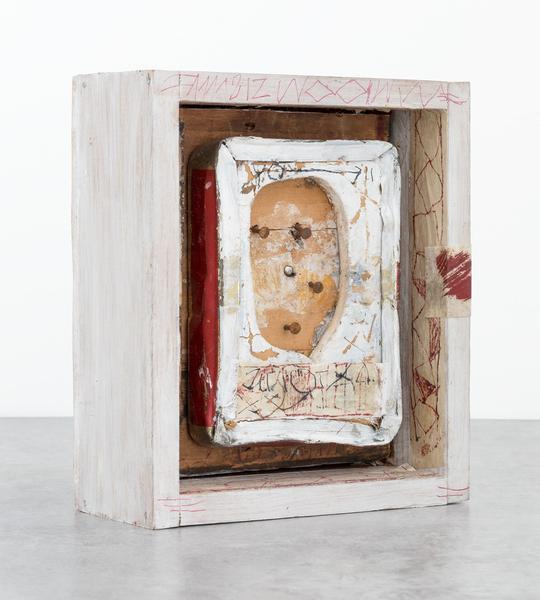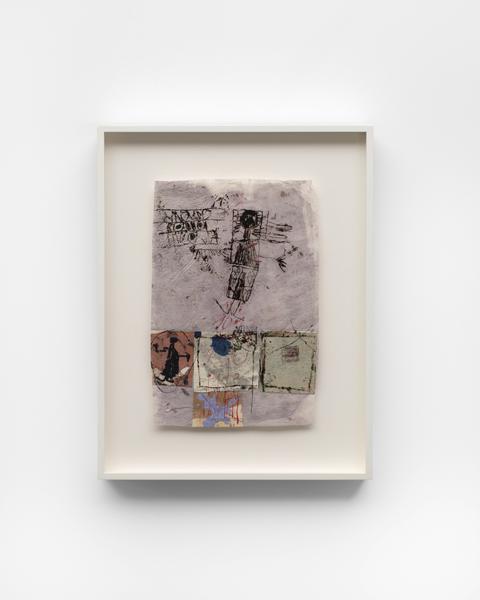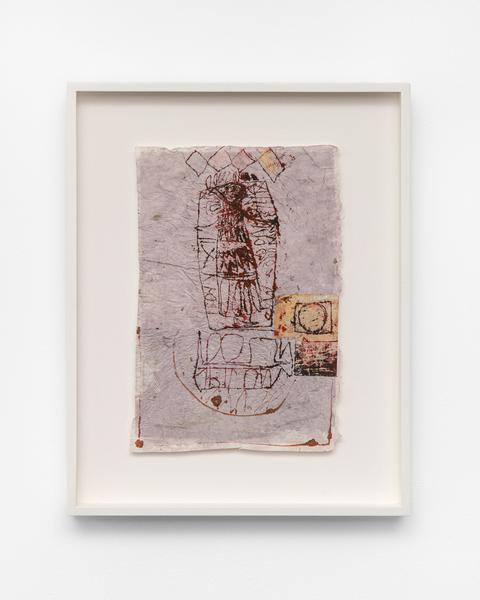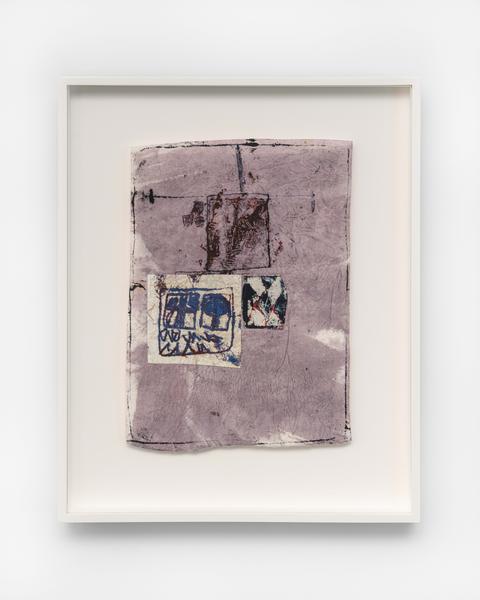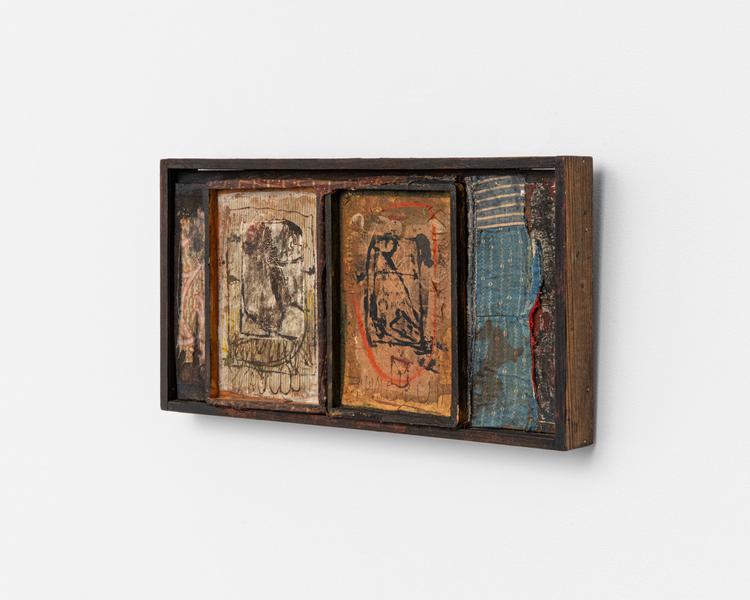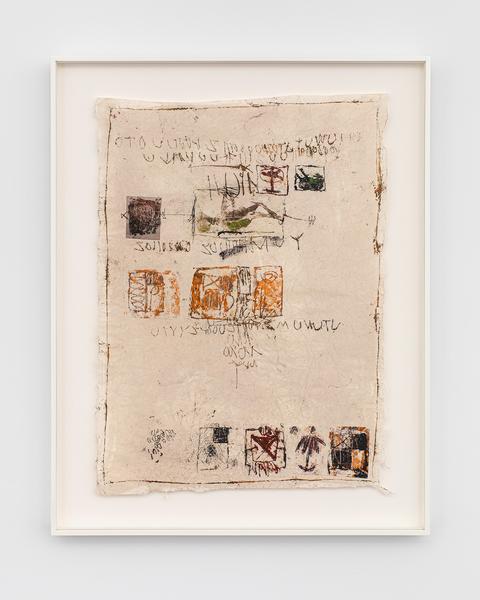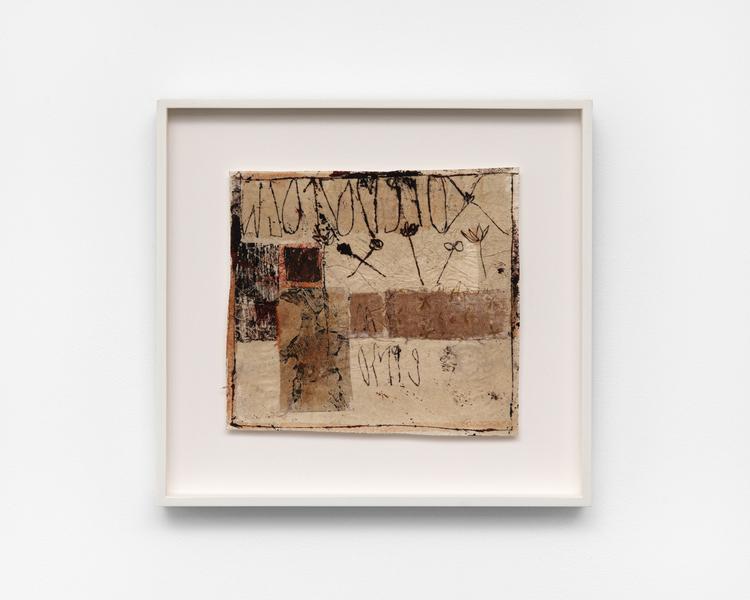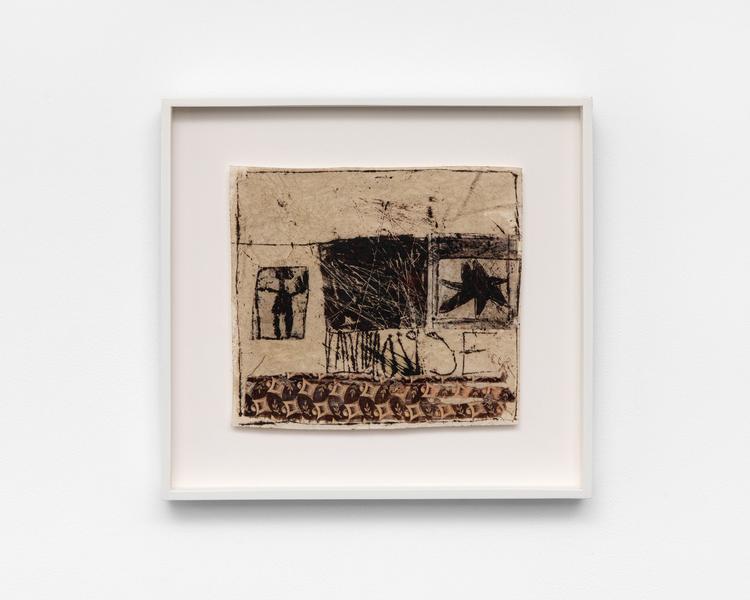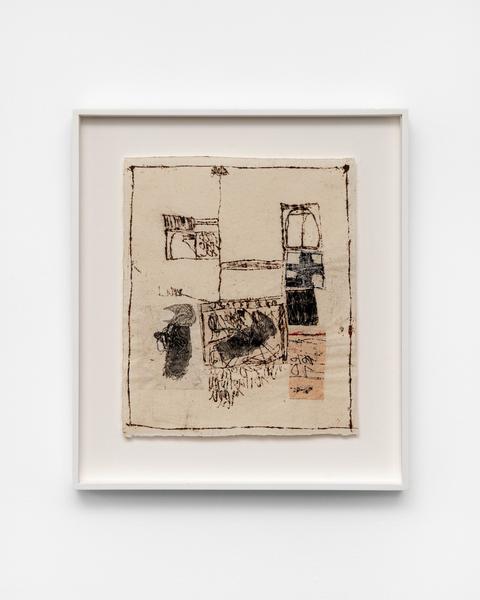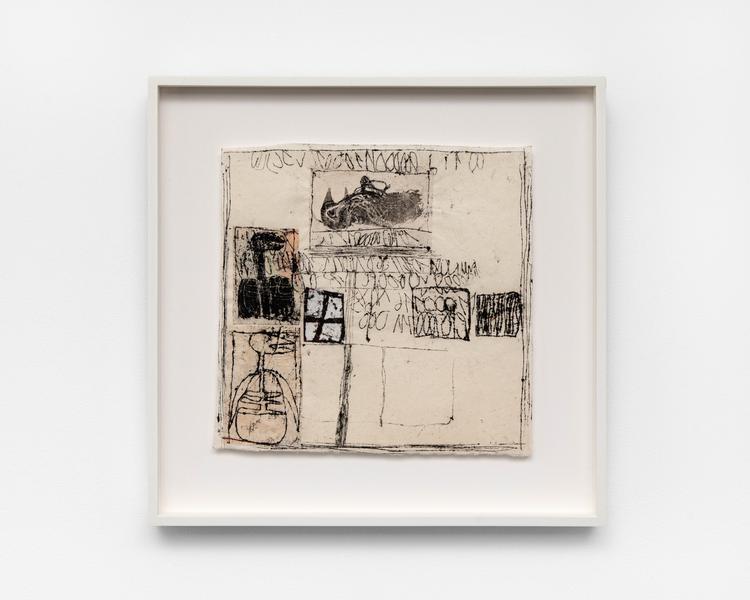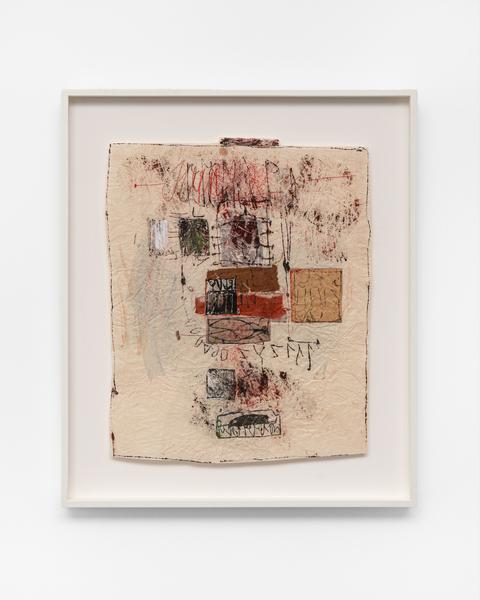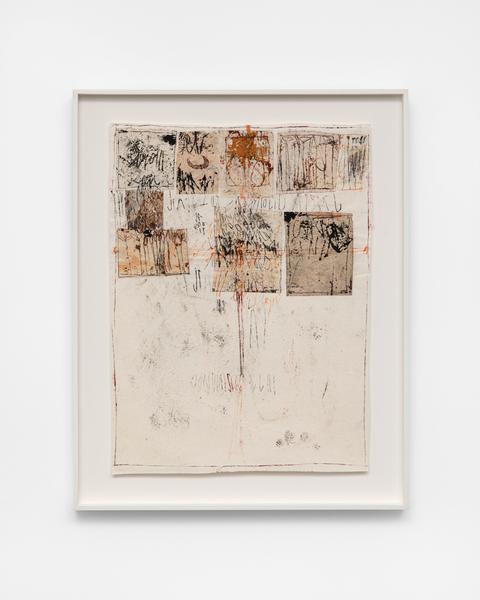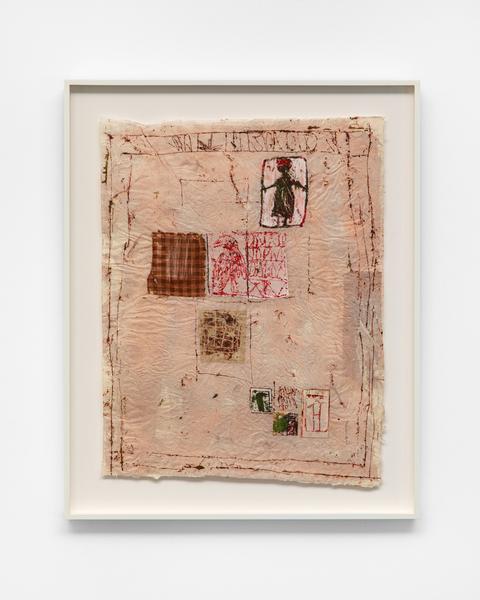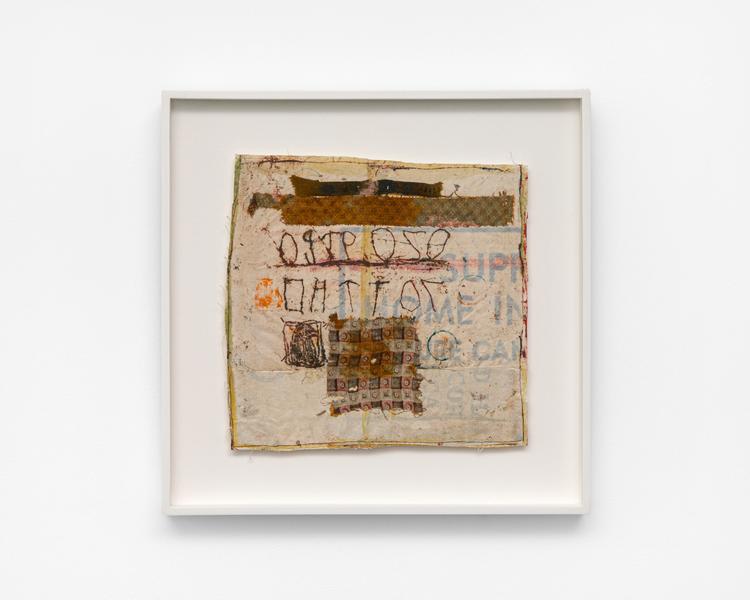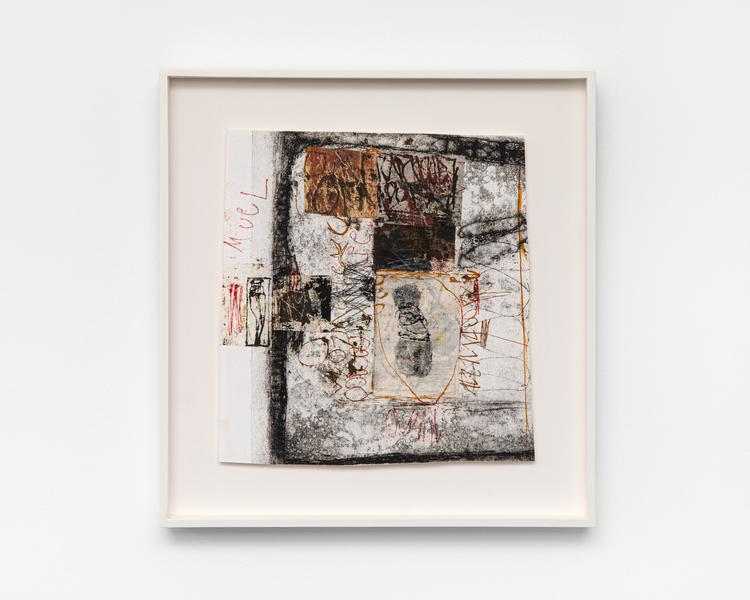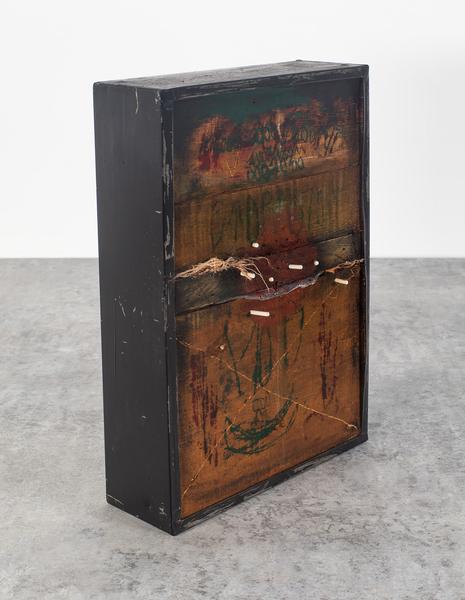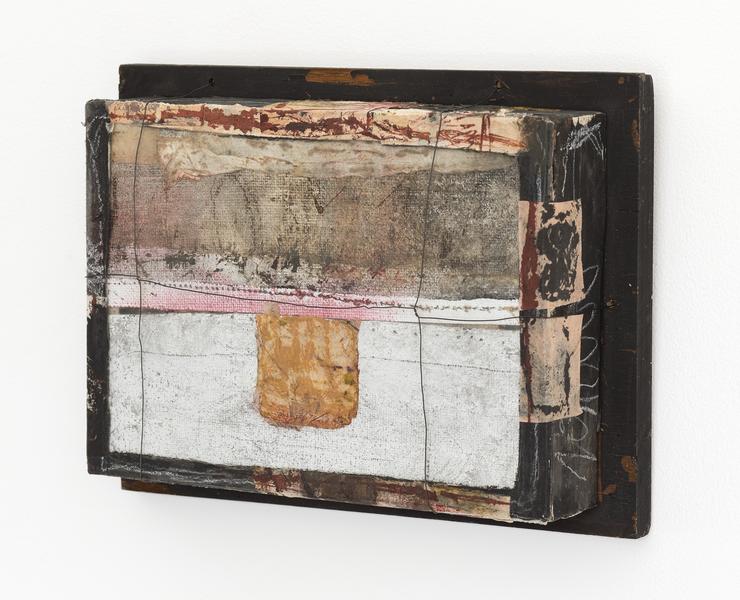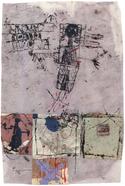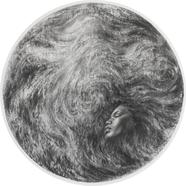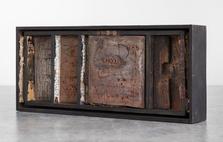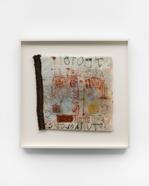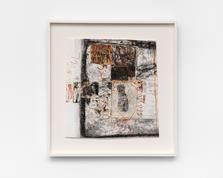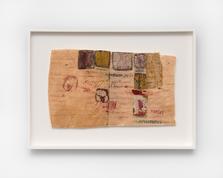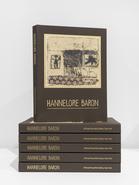Preview Days (by invitation)
Wednesday, December 4, 11AM–7PM
Thursday, December 5, 11AM–7PM
Public Days
Friday, December 6, 11AM–6PM
Saturday, December 7, 11AM–6PM
Sunday, December 8, 11AM–6PM
Visit Michael Rosenfeld Gallery in Booth C2
Buy Tickets
For the Kabinett sector at Art Basel Miami Beach 2024, Michael Rosenfeld Gallery is excited to present a solo exhibition of collage and assemblage works by Hannelore Baron (1926–1987). The presentation will feature a selection of previously unexhibited works from the estate’s holdings executed throughout the 1970s–80s, the most productive decades of the artist’s career. The Kabinett exhibition will coincide with the gallery’s release of a highly anticipated hardcover monograph presenting new scholarship by art historian Dr. Anne Koval (ISBN # 978-1-930416-66-6: 216 pages, 96 color reproductions, 9 x 12 inches).
Composed of worn and weathered found materials, Baron’s collages and box assemblages array a wide variety of meticulously sourced paper, threadbare fabric, timeworn wood, wire, string, and her own monoprints in a variety of configurations replete with sophisticated formal juxtapositions. These materials are illuminated by a poetic vocabulary of signs and symbols evocative of an ancient lost language, urban graffiti, or children’s drawings, imbuing her works with a profound sense of enigma and a clear psychological charge. “Everything I’ve done is a statement on the, as they say, human condition…” Baron explained in a 1981 interview. “The materials I use in the box constructions and cloth collages are gathered with great care. The reason I use old cloth and boxes is that the new materials lack the sentiment of the old and seem too dry in an emotional sense.” Through a concise selection of standout works exemplary of her larger oeuvre, Michael Rosenfeld Gallery’s Kabinett presentation offers an in-depth look at Baron’s unique aesthetic sensibility and complex visual language.
Baron’s collages and assemblages are tactile and intimately scaled, often conveying themes of secrecy and containment. The nuanced textures and complexly layered elements of her works are augmented by a mystical pictographic language, typically executed via a monoprint technique. Many of Baron’s recurring motifs—such as stars, flowers, birds, windows, and bound figures—are situated among lattices of frenetic drawing that resemble script. Emblematic of the thematic continuity of her oeuvre, nearly all of Baron’s works are untitled, emphasizing her preoccupation with indecipherable, esoteric language.
Born Hannelore Alexander in 1926 in the German town of Dillingen, Baron experienced a childhood fractured by violence and displacement as fascism overtook the political and social landscape of the nation. By the age of ten, she and her brother were forced to attend a Jewish school in another town, and two years later vigilantes invaded the Alexander home, terrorizing the family in an event now known as Kristallnacht. Over the next six months, the Alexander children were intermittently separated from their parents as they fled the Nazis. After being reunited and acquiring an emigration quota number from an American Consulate, the family set sail for New York in June 1941. In 1950, Hannelore married bookseller Herman Baron, with whom she had two children. She lived a quiet life in the Bronx as a homemaker for most of her adulthood, carving out space for her art practice in her daily routine and executing most works in her kitchen. Largely self-taught, Baron’s foray into collage and assemblage occurred in the late 1960s. By the late 1970s, she had attracted critical acclaim, gallery representation, and acquisition by public collections. Simultaneously, she battled recurring bouts of cancer beginning in 1973, finally succumbing to the disease in 1987.
While Baron’s works naturally reflect the traumas she endured, she was reluctant to discuss her art in the context of her biography, as her works are intended to convey a variety of meanings, and she did not wish to limit their interpretation. Close study of Baron’s art reveals a cosmopolitan range of influences, including Tantric art, illuminated pages of the Koran, Coptic textiles, Persian miniatures, botanical prints, Native American garments, Asian philosophies, the drawings of Joseph Beuys, and more. She understood her art as a form of political expression as well as therapeutic release, and many works express a fierce empathy for those disempowered by the interrelated forces of nationalism, war, and environmental destruction.
Michael Rosenfeld Gallery is the exclusive representative of the Estate of Hannelore Baron.
